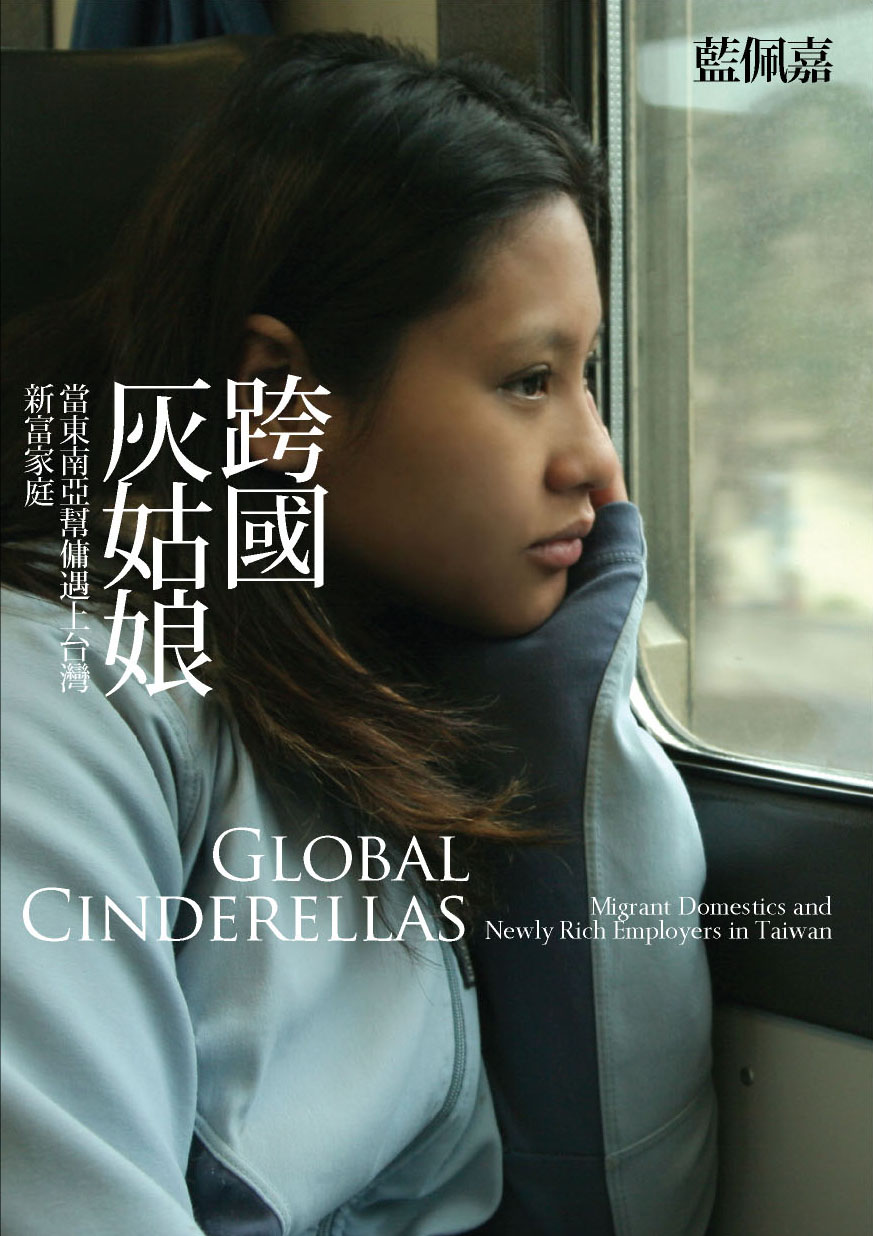Book Description
Migrant women are the primary source of paid domestic workers around the world. Since the 1980s, the newly prosperous countries of East Asia have recruited foreign household workers at a rapidly increasing rate. Many come from the Philippines and Indonesia. Pei-Chia Lan interviewed and spent time with dozens of Filipina and Indonesian domestics working in and around Taipei as well as many of their Taiwanese employers. Based on the vivid ethnographic detail she collected, Lan provides a nuanced look at how global inequalities are enacted in private households. She also sheds light on the fate of the workers, “global Cinderellas” who seek an escape from poverty at home only to find themselves treated as disposable labor abroad.
Lan demonstrates how economic disparities, immigration policies, race, ethnicity, and gender intersect in the relationship between the employees and their Taiwanese employers. The employers are eager to flex their newly acquired financial muscle; many are first-generation career women as well as first-generation employers. The domestics are recruited from abroad as contract and “guest” workers; restrictive immigration policies prohibit them from seeking permanent residence or transferring from one employer to another. They take care of Taiwanese families’ children, often having left their own behind. While many of the domestics, particularly the Filipinas, are well educated, they are expected to act deferentially at work. Throughout Global Cinderellas, Lan pays particular attention to how the women she studied identify themselves in relation to “others”—whether they be of different classes, nationalities, ethnicities, or education levels. In so doing, she offers a framework for thinking about how migrant workers and their employers understand themselves in the midst of dynamic transnational labor flows.
Reviews
“This path-breaking study illustrates how boundaries—of race, class, gender, and citizenship—are imposed on migrant domestic workers. Pei-Chia Lan’s use of boundary-making as the lens through which to analyze the integration of migrant domestic workers is a very important contribution to the burgeoning field of the feminization of migration. This is a brilliant book.”
—Rhacel Salazar Parreñas, author of Children of Global Migration: Transnational Families and Gendered Woes
“We might imagine that the more contact we have with others across the globe the closer our social bonds. But, as Pei-Chia Lan so ably shows, we would be sadly wrong about that. In some ways the madams of Taiwan are ‘close’ to their maids from the Philippines, but in other ways they are very distant from them. Indeed, in some cases the closer we are, the more distant. Just how this works out is the subject of this clearly written, trenchantly argued, hugely important, must-read book.”
—Arlie Russell Hochschild, coeditor of Global Woman: Nannies, Maids, and Sex Workers in the New Economy
| Journal |
Author |
Year/Month |
Page |
| Sociology |
Vogel, Ann |
2010, Vol44(2) |
365-371 |
| Feminist Review |
Pai, Hsiao-Hung |
2009, July |
176-177 |
| Comparative Studies in Society and History |
Gamburd, Michele Ruth |
2009,Vol 51. |
463-464 |
| Signs |
Boris, Eileen |
2008, Summer |
993-999 |
| International Migration and Integration |
Pratt, Geraldine |
2008, June |
227-228 |
| Gender & Society |
Salzinger, Leslie |
2008, February |
129-132 |
| Asia Pacific Journal of Anthropology |
Lui, Vheng- Yuan |
2007, December |
350-352 |
| Labour-Le Travail |
Hsiung, Ping-Chun |
2007 , Fall |
322-324 |
| Ethnic and Racial Studies |
Fong, Eric |
2007, Vol31. |
208-209 |
| Contemporary Sociology |
Hsiao, Hsin-Huang Michael |
2007, July |
391-393 |
| China Perspectives |
Yu, Wen-Chen |
2007, Vol3. |
|
| China Quarterly |
Davin, Delia |
2007, March |
216-217 |
| Pacific Affairs |
Constable, Nicole |
2006, Winter |
681-682 |
| Canadian Journal of Sociology Online |
Wilkinson, Lori |
2006, Nov- Dec |
|
| New Zealand Journal of Asia Studies |
Haddon, Rosemary |
2006, December |
217-219 |
| International Social Science Review |
Uneke, Okori A. |
2006, Vol 3-4 |
185-187 |
![[Cover of Global Cinderellas]](images/books/pid_24674.jpg)



![[跨國灰姑娘一書封面]](images/books/glb_cinderella_zh.jpg)